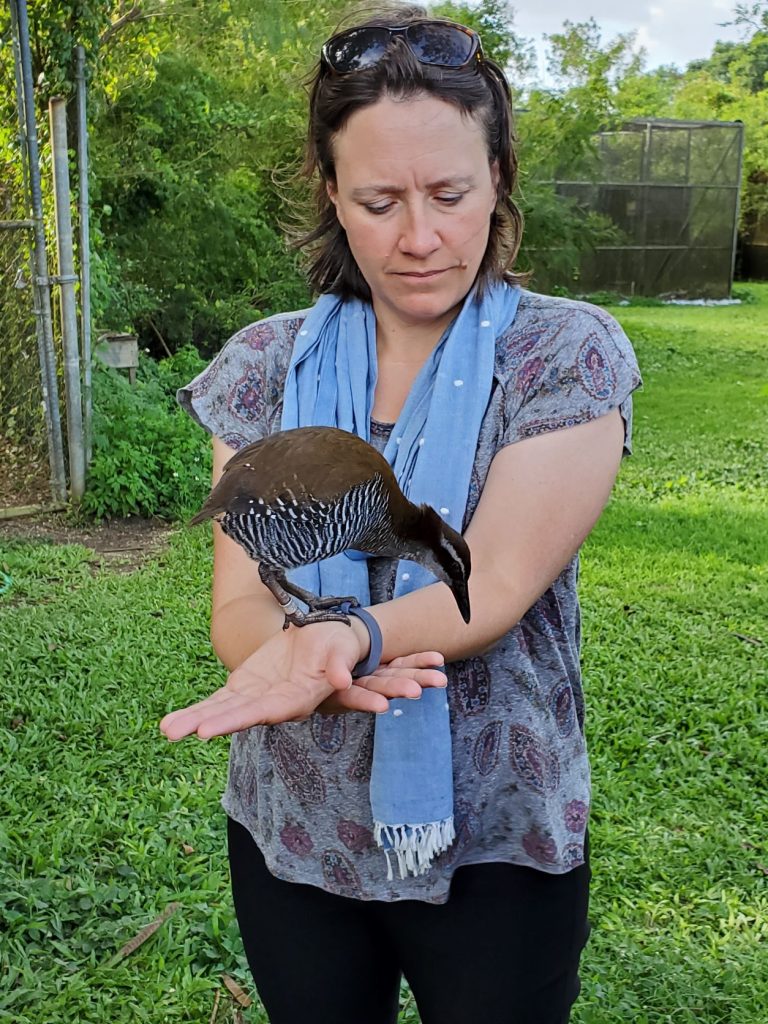
Dr. Sarah Converse
I am the Unit Leader of the Washington Cooperative Fish and Wildlife Research Unit, and a Professor in the School of Aquatic and Fishery Sciences & the School of Environmental and Forest Sciences at the University of Washington. I am also a member of the IUCN Conservation Translocations Specialist Group.
Officially, I’m interested in doing science that helps managers make better, more informed, and more transparent decisions about the management of fish and wildlife populations. Unofficially, I’m interested in staying out of the way and letting the excellent post-docs and students I’m lucky enough to work with do their magic. You can read more about them on this page.
You can find out more about our work on my Google Scholar page and the lab GitHub page. My current-ish CV can be found here.
Post-Docs
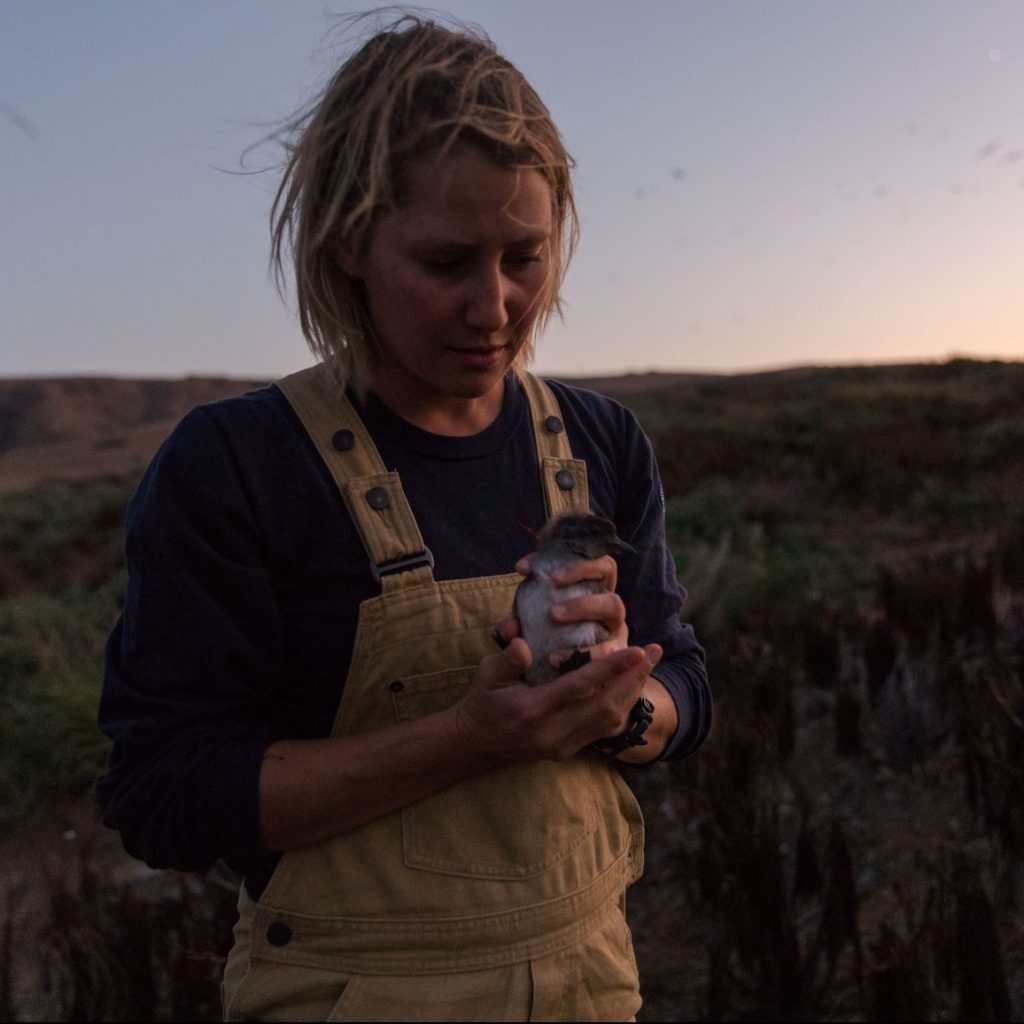
Dr. Amelia DuVall
Project: Seabird ecology at Tetiaroa Atoll
Contact: ajduvall (at) uw.edu
I am a quantitative ecologist specializing in the development of statistical models for large and complex ecological datasets to inform wildlife conservation. My research primarily focuses on seabirds, one of the most threatened groups of vertebrates in the world. Geographically, my work spans island ecosystems across the Pacific, including the California Channel Islands, French Polynesia, and southern Japan. I received my PhD from the School of Aquatic and Fishery Sciences under Dr Sarah Converse in 2025, where my dissertation focused on population ecology and decision analysis to inform conservation of seabirds at Channel Islands National Park. My postdoctoral work is focused on movement ecology and conservation of tropical seabirds at Tetiaroa Atoll, French Polynesia. In this role, I will be 1) applying hidden Markov models to assess overlap with a proposed marine protected area in French Polynesia; 2) using few-shot transfer learning with BirdNET to analyze acoustic data and investigate seabird distribution, habitat associations, and phenology; and 3) developing an integrated data model to predict seabird responses to invasive rat eradication to inform future conservation efforts.
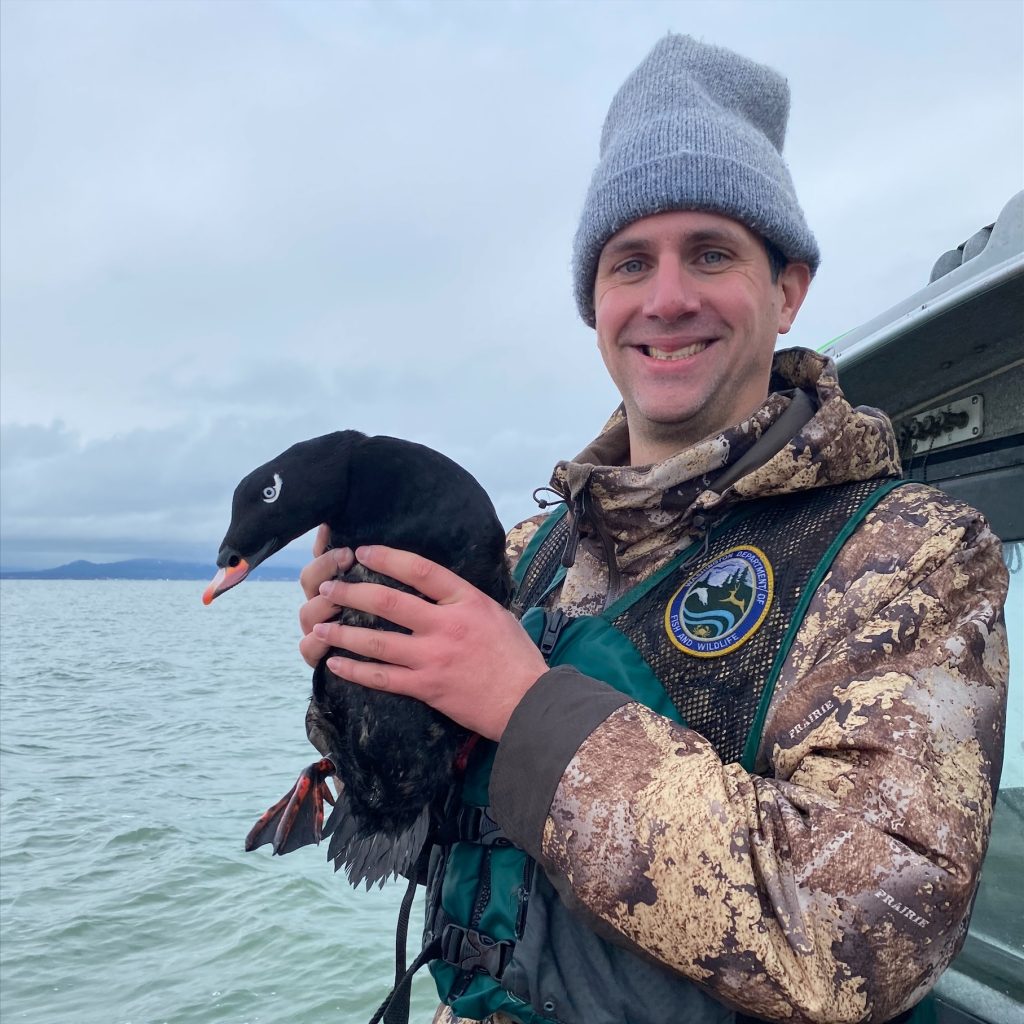
Dr. Matt Farr
Project: Maximizing the Value of Salish Sea Aerial Surveys for Sea Duck Management
Contact: farrm (at) uw.edu
I develop quantitative methods for community and population ecology. I utilize hierarchical models to parse out the complexities of ecological systems into processes that can be described using multi-level statistical and mathematical models. I work with partners in academia and government agencies to apply these methods to conserve and manage wildlife populations. The aim of my postdoctoral research is to develop a quantitative framework to assess population trends and distributions of sea ducks and other marine birds within the Salish Sea. In collaboration with Washington Department of Fish & Wildlife, we are using long-term aerial survey data to estimate spatiotemporal variation in sea duck abundance and potential environmental drivers of their spatial distribution and temporal trends. Results from this work will improve methods to estimate sea duck abundance and inform harvest regulations. For more information about me or my work, please see my website (https://farrmt.github.io/).
Graduate Students
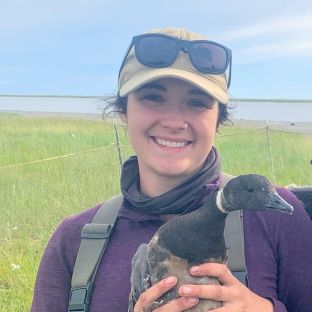
Ms. Caroline Blommel
Project: Population ecology of seaducks in the Pacific Flyway
Contact: blommelc (at) uw.edu
I am a PhD student in the School of Aquatic and Fishery Sciences at the University of Washington. At UW, I work on developing population models for sea birds in the Puget Sound. In collaboration with the Washington Department of Fish and Wildlife, I am working to improve mark-recapture data collection and demographic estimates for sea duck populations in the Salish Sea. Before joining the QCons lab, I got my undergraduate degree from Michigan State University (go green!) in Zoology. After my undergrad, I spent a few years at Colorado State University and in coastal Alaska learning to drive a boat in the Bering sea, getting pooped on by terns, and studying the population dynamics of Pacific black brant for my MSc degree. My research interests lie mainly in wildlife population ecology, demographic impacts of climate change, and quantitative methods development to improve resource management. When I’m not in the field chasing birds or in the lab behind a computer, I love to climb, hike, and birdwatch!
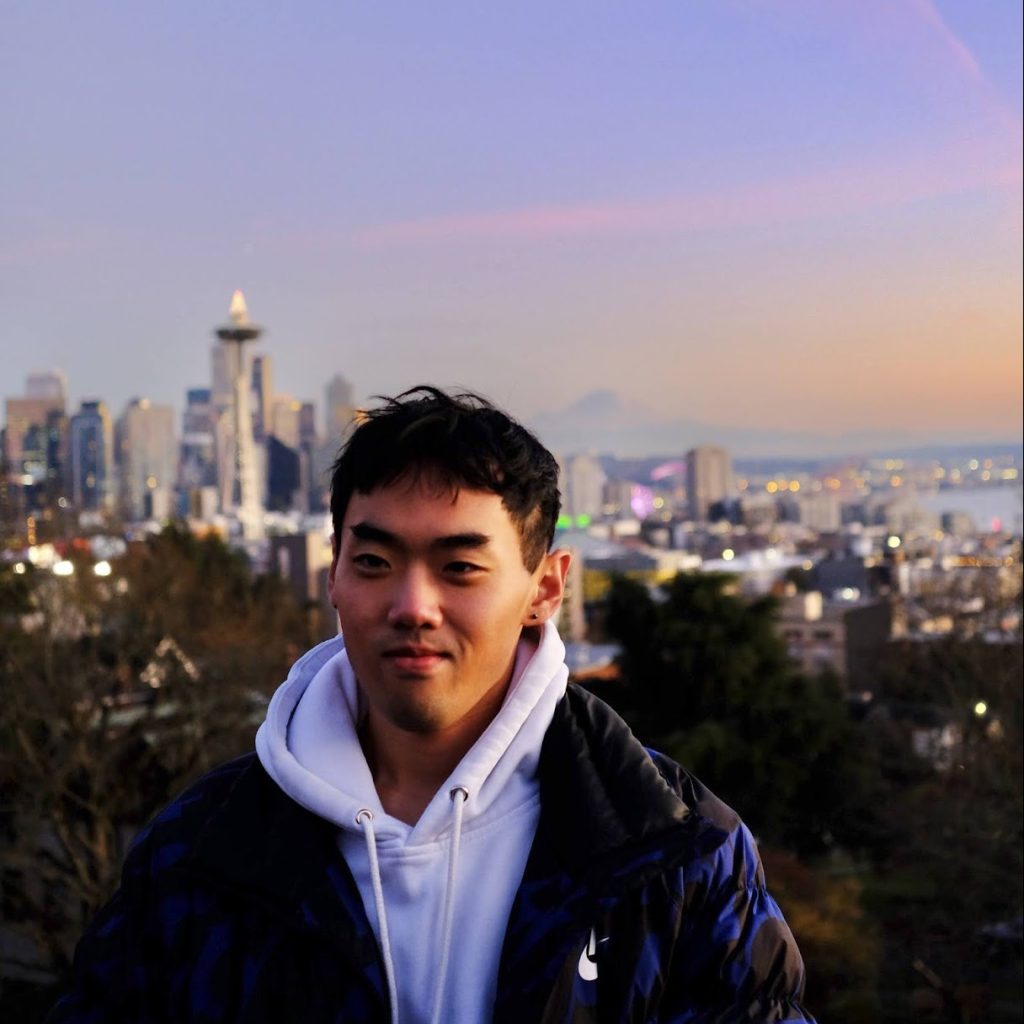
Mr. Timothy Chen
Project: Using quantitative methods to assess and manage threats for northwestern pond turtle recovery
Contact: tmzchen (at) uw.edu
Hi! I am a PhD student in the School of Environmental and Forest Sciences at the University of Washington. I am currently working on building models that help conserve the state-endangered Morthwestern pond turtles here in Washington, splitting my time in front of my computer and playing with turtles, as my friends call it. I am working closely with the Washington Department of FIsh and Wildlife, hoping to help them better assess threats and manage resources for northwestern pond turtle conservation. Prior to coming to UW, I completed my B.S. in Environmental Science and Management at UC Davis, where I spent time studying how snowmelt patterns affect amphibian phenology and how plants evolve in serpentine grasslands. In my free time, I enjoy rock climbing, working out, and enjoying the PNW outdoors in all the ways possible. My research interests include population modeling, wildlife conservation, resource management, and climate change ecology.
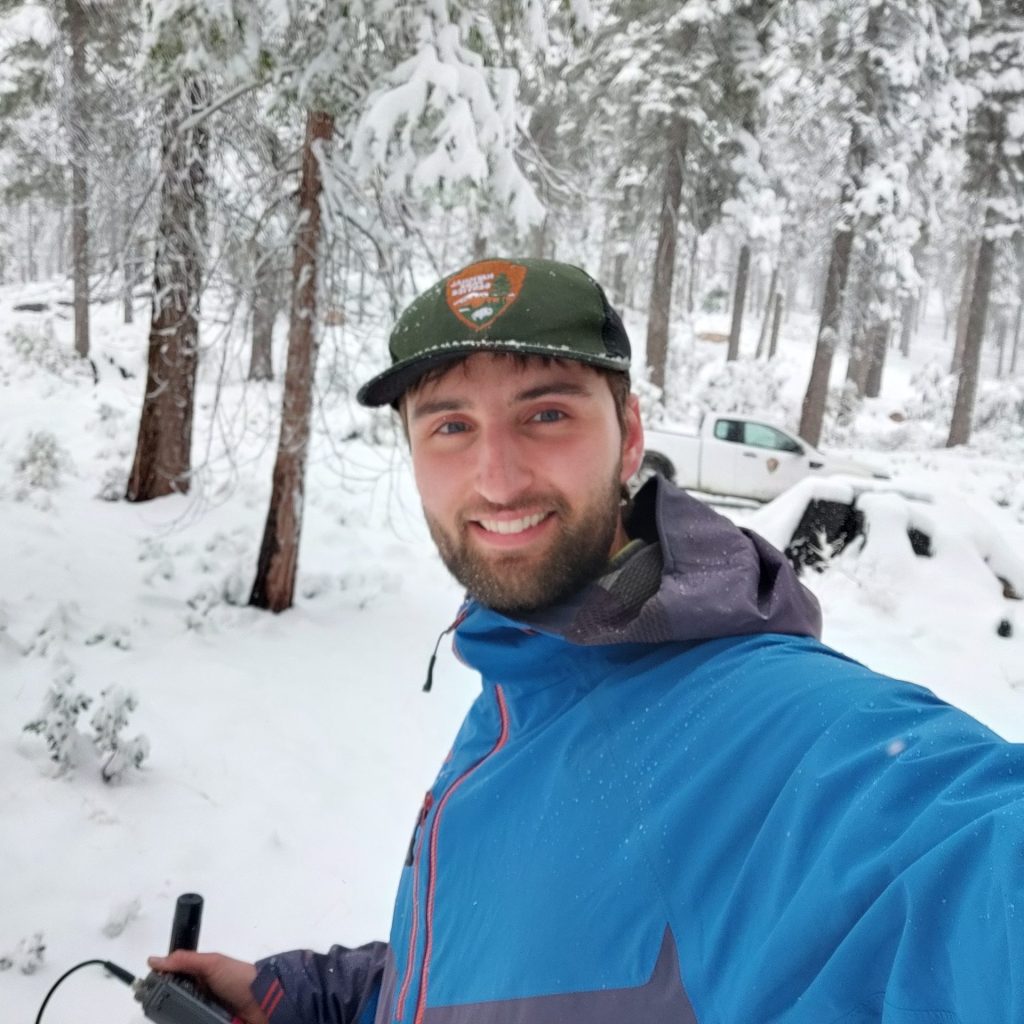
Mr. Nathan Redon
Project: Assessing threats to the declining Cascade red fox combining capture-recapture methods & Indigenous knowledge
Contact: nredon (at) uw.edu
I am a Ph.D. student in the School of Environmental and Forest Sciences at the University of Washington. Before joining the Quantitative Conservation Lab, I completed my B.S. in Environmental Science and Resource Management with a focus on Wildlife Conservation, also at UW. I’ve spent many moons diving on sage grouse, staring at gelada monkeys, and howling at wolves. More recently, I’ve been involved with projects studying endangered fishers and montane foxes in the Cascades and Sierra Nevada. My research interests include carnivore population dynamics, conflicts at the human-wildlife interface, and intraguild interactions in changing montane landscapes. I am currently working to develop estimates of density and survival of Cascade Red Fox in Mt. Rainier National Park and the surrounding area.
Lab Affiliates

Dr. Staci Amburgey
Project: Optimal monitoring and management of brown treesnakes
Contact: Staci.Amburgey (at) dfw.wa.gov
I am a former post-doc in the QCons Lab, now working as a quantitative ecologist for the Washington Department of Fish and Wildlife’s Science Division in the Wildlife Program. I help plan and implement field studies and analyze data related to the management and conservation of a variety of species within the state of Washington. I am helping to finish work on my previous post-doctoral project, focused on monitoring brown treesnakes in Guam, and developing optimal monitoring and management schemes to guide future monitoring and efforts at control and eradication. Prior to coming to Washington, I completed a Ph.D. at Pennsylvania State University and a M.S. at Colorado State University. You can read more about me here.
Past Lab Members
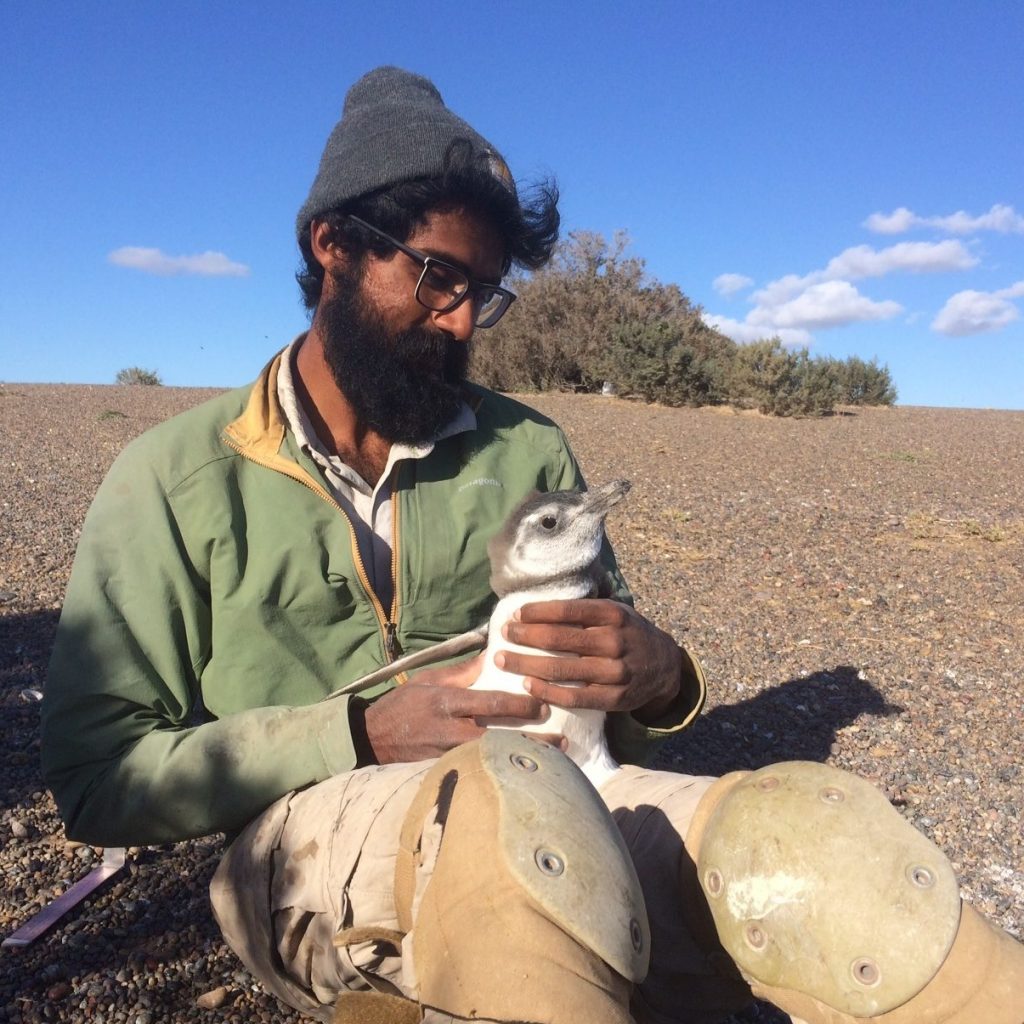
Ms. Kelly Mistry (Research Scientist, 2023-2025)
Ms. Eve Hallock (MS, 2022-2025)
Mr. Liam Pendleton (MS, 2021-2024)
Dr. Brielle Thompson (Ph.D., 2019-2024)
Dr. Hannah Sipe (MS, 2016-2019; Ph.D., 2019-2023)
Dr. Abby Bratt (Ph.D., 2018-2023)
Dr. Amanda Warlick (Ph.D., 2018-2022; Post-Doc, 2022)
Dr. Jamie Brusa (Post-Doc, 2020-2022)
Dr. Lisanne Petracca (Post-Doc, 2020-2022)
Dr. Mark Sorel (Ph.D., 2018-2022)
Ms. Tam Ta (Undergraduate, 2020-2022)
Ms. Marcela Todd (Undergraduate, 2020-2021)
Dr. Nathan Hostetter (Post-Doc, 2016-2020)
Dr. Martina Kadin (Post-Doc, 2017-2020)
Dr. Jonathan Cummings (Post-Doc, 2013-2017)
Dr. Sabrina Servanty (Post-Doc, 2010-2013)
Dr. Stefano Canessa (Ph.D., University of Melbourne, 2011-2015)